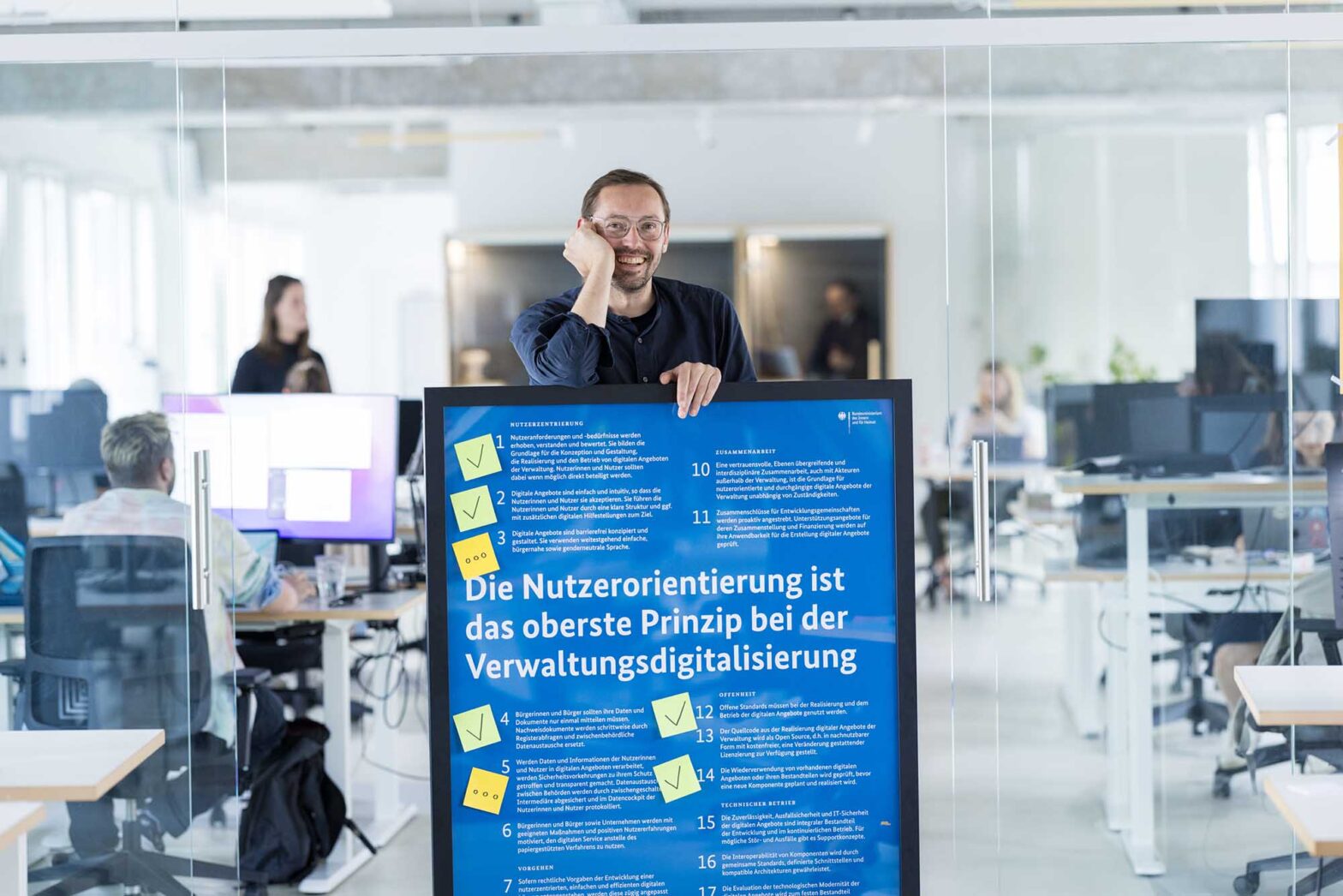This week I only worked 3 days and spent Thursday and Friday in Hamburg with my family. In those 3 days, I felt productive as the number of meetings has reduced as colleagues are on leave.
With topics for our Tuesday all-hands sessions drought up due to the summer slump, I used 10 minutes to tell everyone around about the Service Standard, how we are using it, supporting it and how we think it can change things. Afterwards, colleagues from various disciplines and teams contacted me with questions and requests. There is interest in this imperfect tool at our disposal.
My message was that digital transformation is difficult as we, again and again, struggle with some stakeholders because they aren’t familiar with our ways of working. Pulling out and pointing to the Service Service as an official document – not developed by use – that codifies our way of working is useful. I mentioned our now contractual references to the Service Standard, the workshops we started running with various teams and the ongoing reporting we have begun. The legal team has been working on internal guidance for integrating references to the standard into new contracts – the how and why.
Giving an outlook, I mentioned the upcoming training for stakeholders and project partners, our first internal peer reviews, the idea of external peer previews and how we want to use conversations across NExT communities to build a new alliance of Service Standard users. I also mentioned that I am working on a theory of change for broader Service Standard adoption.
I closed with the staged photo above – which an external photographer talked me into. It’s good for some laughs, at least.
Broadening the conversation
Having a related objective for this quarter’s OKRs, I talked to more people outside Digital Service about supporting and working with the Service Standard. Ann Cathrin from NExT bounced ideas. She suggested a conversational format in September to build further awareness and share the ambitions we have around it. She also suggested a few others in various roles and organisations to talk to.
As they are listed on the German government’s Service Manual page on training, I spoke to a colleague at the Digitakakademie. They are offering digital skills training for all levels of German government. I could not find any mention of Service Standard-related training on their page, so I reached out. We had a productive conversation, and I have more people in their unit to talk to. We see a demand for practical educational content and interactive formats covering the scope and spirit of the Service Standard. I hope we can shape some valuable offerings together.
On Wednesday, I also spoke with a colleague in our comms teams, who supports our CEO Christina in putting her monthly – and soon bi-monthly – column together. The Service Standard will be the September column’s topic, so he reached out to learn more. We talked about the very essence of the Service Standard and what kind of good it can do. He also asked what things I would change if allowed to iterate it.
Our conversation stuck with me when I saw a poster from the Federal Ministry of Health the next day. It promoted a new information offering on long-COVID published on some rather untrustworthy new non-government domain.
So in a number of tweets, I argued that trust-building government domain management should be written into the Service Standard and be mandated.
Progressing community conversations
On Tuesday, we had the 3rd monthly cross-public sector user research exchange. This round’s topic was tools and tooling. My colleague Sonja wasn’t around for it but had some excellent preparation work by suggesting several questions for us to discuss. This time, it was a smaller round with 5 of us from 3 different organisations. We talked about the research methods we use, the tools we use for them and the related technical prerequisites. We discussed the associated challenges and shared tips. After the call, colleagues shared their data-sharing and consent forms used for research participants. Realising that we all deal with making similar internal cases
On the same day, in our internal ‘Design & User Research Weekly’, we collected topics for the format’s agenda for the next few weeks and months. Once explicitly asked, the team had plenty of ideas and suggestions. I had asked people before to put things into our open agenda, but almost no one had done that. By reserving some 10 minutes for it and collecting ideas in a structured meeting, everyone could focus on it and dedicate some time. There are some superb topics on the list. So now, I’m looking to late summer and autumn to cover them one by one and week by week.
While riding the train, I finished my blog post about our community work. It covers international, national and local work. So far, the draft is written in German, but I want to write an English version once this is edited.
What’s next
With 1 working day in July left, I’m hoping we can get our 3rd Service Standard report out before the month ends.
Having the community blog post finished, I hope my comms colleagues have some capacity to review and edit it – and maybe even publish it, too.
Kara and I will have a longer working session on Monday to plan our various international activities, including the autumn conference talks. I’m looking forward to that.

